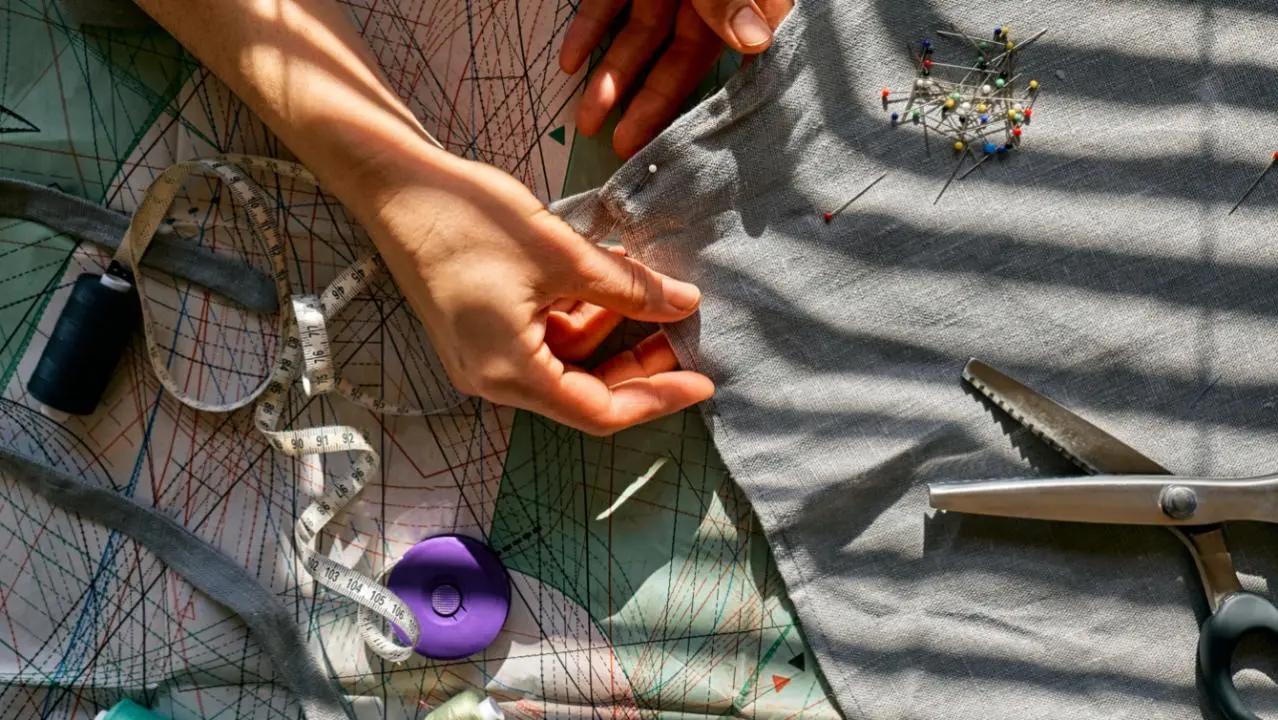Sustainability in fashion extends beyond ecological considerations; it encompasses ethical and social dimensions as well

Image for representational purposes only. Photo Courtesy: iStock
In the ever-evolving landscape of the fashion industry, the need for sustainability has emerged as a clarion call for change. Across the world, there has been a dynamic shift in consumer awareness, government policies and industry practices that underscore the pressing necessity of integrating sustainability into the very fabric of fashion. In a world where trends change faster than seasons, it is crucial to recognise that the imperative for sustainability in fashion is not a fleeting trend but a fundamental shift towards a more responsible and ethical future.
ADVERTISEMENT
The fashion industry contributes significantly to the global economy, with a value of more than $2.5 trillion and employing close to 300 million people worldwide. While the past couple of decades have seen the accelerated growth of the fast fashion industry, increasing attention has also been brought to the wide range of its negative environmental and social impact. Fashion production makes up 8-10 per cent of humanity's carbon emissions, more than five trillion litre of water is used for fabric dyeing alone, more than 8,000 chemicals are used to turn raw materials into clothing, an equivalent of one garbage truck full of clothes is burned or dumped in a landfill every second and 500,000 tons of microfibers are released into the ocean each year from washing clothes. The environmental toll exacted by the fashion industry is staggering, with fast fashion contributing to climate change, environmental pollution, natural resource and biodiversity depletion, and an alarming increase in textile waste.
Sustainability in fashion extends beyond ecological considerations; it encompasses ethical and social dimensions as well. The push for sustainable practices is also a call to address the often-overlooked human cost of fast fashion. Exploitative labour practices in farms and factories, unsafe working conditions, insufficient and non-payment of wages and debt burdened cotton farmers have marred the industry's reputation. By embracing sustainability, fashion brands can uphold ethical standards, ensuring the welfare of workers and farmers across the supply chain and fostering a more equitable and socially responsible industry.
The need of the hour is a paradigm shift in not only how we produce fashion but also how we consume it. We need to move away from-the fast and cheap buy, limited wear, quick to discard fashion -- to more circular and longer lasting fashion choices. The resurgence of the swap, lend, thrift, care, mend and hand-me-down fashion can not only sustainably multiply our wardrobes but also significantly reduce the impact of fashion on the planet. And when fresh purchases are needed one should choose from brands which are conscious and have a holistic perspective of sustainability in the fashion they manufacture. Making fashion purchases through the creed of buying less but buying sustainable and buying better. Viewing cost of garment not from the lens of price per garment but price per wear and prices that cover the "True Cost" of making the garment could have the potential of turning the industry practices on its head.
Consumer awareness and demand are pivotal drivers of change in the fashion industry. As consumers become increasingly conscious of the environmental and ethical implications of their choices, they wield significant influence in steering the industry towards sustainability. Prioritising sustainable consumption practices in line with Mission LiFE (Lifestyle for Environment) and the Sustainable Development Goal 12 (Responsible Consumption & Production) and rewarding brands that prioritise eco-friendly materials, ethical and sustainable production processes, and transparent supply chains can be a key lever to accelerate the sustainable fashion movement. Such a shift would underscore not only a desire for a stylish attire but also a commitment to responsible consumption and a sustainable future.
The economic viability of sustainability in fashion is becoming increasingly evident. As technologies advance and sustainable practices become more mainstream, the cost differentials between conventional and eco-friendly production methods are narrowing. Brands that invest in sustainability, circular fashion and extending product life are not only contributing to tackling climate change but are also future-proofing their businesses in a market where conscious consumerism is on the rise.
Governments, industry associations, and influencers are also recognising the need for change. Policies promoting sustainability, initiatives that support ethical practices, and the influence of prominent figures advocating for eco-friendly fashion are all contributing to a broader cultural shift.
Sustainable fashion is not only about setting up a zero-carbon production and supply chains, it is also about including fair trade and ethical practices for labour and farmers, nurturing artisanship, and promoting circularity -- recycling and upcycling. Therefore, organisations should find a balance between social, environmental and economic considerations.
The call for sustainability in fashion is not merely a trend; it is an imperative born out of a profound understanding of the environmental, ethical and economic challenges posed by the industry. By championing greener methods in fashion through our choices, conversations, and narratives, we can collectively shape an industry that not only reflects our aesthetic preferences but also honours our shared responsibility to the planet and its people.
(Abhishek Jani, CEO, Fairtrade India project)
This story has been sourced from a third party syndicated feed, agencies. Mid-day accepts no responsibility or liability for its dependability, trustworthiness, reliability and data of the text. Mid-day management/mid-day.com reserves the sole right to alter, delete or remove (without notice) the content in its absolute discretion for any reason whatsoever
 Subscribe today by clicking the link and stay updated with the latest news!" Click here!
Subscribe today by clicking the link and stay updated with the latest news!" Click here!







